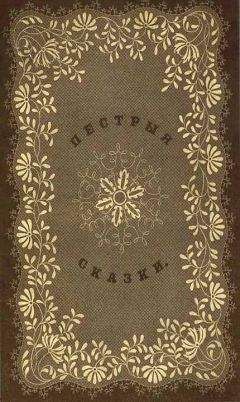Plaidy, Jean - Royal Sisters: The Story of the Daughters of James II
“His Majesty gave me this,” he said, “when he bestowed the Garter on me. He put on the Garter with his own hands which I assure you is most unusual. It is because he holds me in such regard. Am I not fortunate. But I shall repay His Majesty. Look here, Mama, this is the note I am sending him.”
Anne had taken the note and Sarah, with the boy’s governess, Lady Fitzharding, had looked over her shoulder as she read:
I, Your Majesty’s most dutiful subject, had rather lose my life in Your Majesty’s cause than in any man’s else, and I hope it will not be long ere you conquer France. We, your Majesty’s subjects, will stand by you while we have a drop of blood.
Gloucester
Anne had smiled and looked from Barbara Fitzharding to Sarah. Besottedly, thought Sarah. It was true the boy was precocious—but he was a child. And when he offered his soldiers—boys of his own age with toy muskets and swords to the King—it was a joke and nothing more. But even grim William gravely accepted these offers and came to Kensington to review the small troops. Perhaps, thought Sarah sardonically, this was not so foolish as it seemed; for it was only on such occasions, with the crowd looking on, that he managed to raise a cheer for himself.
“I am sure the King will be delighted,” Anne had said.
“Doubtless he will think I am a little too fine,” mused Gloucester thoughtfully. “But my loyalty may help to divert his impatience with my finery.”
The Princess Anne had rolled her eyes in ecstasy. Was there ever such a boy! What wit! What observation! What a King he would make when his turn came!
When he had left them they had had to listen to accounts—heard many times before—of his wit and wisdom. Sarah was impatient, but Barbara Fitzharding was almost as besotted as the Princess; and there they had sat, like two old goodies, talking about this wonderful boy.
It was later when Sarah and Barbara were together, that Sarah gave way to her impatience.
“I do not think the King cared for all that display,” she commented, a smile which was almost a sneer turning up a corner of her mouth.
“He is, I believe, truly fond of his nephew,” Barbara replied. “And he is not fond of many people.”
“There are his good friends, Bentinck and Keppel—Bentinck the faithful and Keppel the handsome—and of course his mistress.”
Sarah looked slyly at Barbara, for it was her sister, Elizabeth Villiers, who had been William’s mistress almost since the beginning of his marriage to the time of the Queen’s death. The Queen had left a letter that had been opened after her death reproaching William and asking him to discontinue the liaison, and which had so shaken the King that he had left Elizabeth alone for a long time. Sarah believed, though, that the relationship had been resumed—very secretively; and Barbara, a spy reporting everything to her sister who passed it on to William, would know if this were so.
“He is so very ill these days,” said Barbara. “I doubt whether he has the time or energy for diversions.”
“His gentlemen friends remain at his side. I hear they enjoy themselves on Holland gin in the Hampton Banqueting House. He still finds time—and energy—to indulge his Dutchmen.”
“But he is looking more frail every week.”
“That is why it was a mistake to dress Gloucester up in all that finery. It was almost proclaiming him Prince of Wales before his mother is Queen.”
“I wonder,” said Barbara with a hint of sarcasm, “that you did not warn his mother since she would most assuredly listen to you.”
“I did warn her.”
“And she disobeyed?” Veiled insolence! Sarah had never liked Barbara Fitzharding since the days when as young Barbara Villiers she had lived with the circle of girls, Sarah among them, who had been brought up by Barbara’s mother, with the young Princesses Anne and Mary in Richmond Palace.
“She is so besotted about that boy.”
“He is her son.”
“He is being pampered. I would not let one of mine be indulged as he is.”
Was this a reflection on Barbara’s governess-ship? Barbara disliked Sarah Churchill—who at Court did not?—and although she might rule the Princess Anne’s household, Barbara was not going to allow her to interfere in that of the Duke of Gloucester.
“He is by no means indulged. He merely happens to be an extremely intelligent boy. In fact, I have never known one more intelligent.”
“Have you not? I must invite you to St. Albans one day and you shall meet my children.”
Barbara laughed. “Everything you have must naturally be better than other people’s.”
“Must always be? What do you mean by that? My children are strong, healthy, intelligent, which is not to be wondered at. Compare their father with that … oaf … I can call him nothing else … who goes around babbling ‘Est-il possible?’ to everything that is said to him! Prince George of Denmark! I call him Old Est-il-possible! And when I do everyone knows to whom I refer.”
“One would think you were the royal Princess—Her Highness, your servant,” said Barbara. “You ought to take care, Sarah Churchill. You should think back to the days when you first joined us at Richmond. You were fortunate, were you not, to find a place there? It was the greatest good luck … for you. You must admit that you were not of the same social order as the rest of us. We were noble and you …”
“Your relative, Barbara Villiers—my lady Castlemaine as she became—put honors in your family’s way because she was an expert performer in the King’s bedchamber. We had no such ladies in our family.”
“Your husband I believe did very well out of his relationship with my lady Castlemaine. She paid him for his services to her … in the bedchamber. Was it five thousand pounds with which he bought an annuity? You must find that very useful now that my lord Marlborough is out of favor and has no office at the Court.”
If there was one person in the world whom Sarah truly loved it was her husband, John Churchill, Earl of Marlborough; and although he had had a reputation as a rake before their marriage, he had, she was certain, remained absolutely faithful to her since. This reference to past indiscretions aroused her fury.
She slapped Barbara Fitzharding’s face.
Barbara, taken aback, stared at her, lifted her hand to retaliate and then remembered that there must be no brawling between women in positions such as theirs.
But her anger matched Sarah’s.
“I’m not surprised at your mode of behavior,” she said. “It is hardly to be wondered at. And besides being arrogant and ill-mannered you are also cruel. I should be ashamed, not to have poor relations, but to turn my back on them while they starve.”
“What nonsense is this?”
“It is no nonsense. I heard only the other day the distressing story of the Hill family. I was interested … and so was my informant … because of their connection with the high and mighty Lady Marlborough! Your uncle, aunt, and cousins … dying of starvation! Two girls working as servants, I hear, two boys running about the streets, ragged and hungry.”
“A pitiable story and one which does credit to your imagination, Lady Fitzharding.”
“A pitiable story, Lady Marlborough, but it owes nothing to my imagination. Go and see for yourself. And let me tell you this, that I shall not feel it my duty to keep silent about this most shameful matter.”
Sarah for once was speechless, and when Lady Fitzharding flounced out of the room she stared after her, murmuring: “Hill! Hill!” The name was familiar. Her grandfather Sir John Jennings, she had heard her own father say, had had twenty-two children and one of these, Mary, had married a Francis Hill who was a merchant of London.
Sarah had heard nothing of him since. One did not need to keep in touch with one’s merchant connections—except of course when they were likely to bring disrepute.
Sarah made one of her prompt decisions.
Something must be done about the Hills.
Read all of Jean Plaidy’s
Novels of the Stuarts
in historical order:
1. The Royal Road to Fotheringhay
The Story of Mary Queen of Scots
$15.00 PAPERBACK
978-0-609-81023-1
2. The Captive Queen of Scots
The Story of Queen Mary
$14.95 PAPERBACK
978-1-4000-8251-3
3. The Murder in the Tower
The Story of Frances,
Countess of Essex
$14.00 PAPERBACK
978-0-307-34621-6
4. The Loves of Charles II
The Stuart Saga
$16.00 PAPERBACK
978-1-4000-8248-3
previously published as
three separate volumes:
The Wandering Prince
Health Unto His Majesty
Here Lies Our Sovereign Lord
5. The Three Crowns
The Story of William and Mary
$14.00 PAPERBACK
978-0-307-34624-7
6. Royal Sisters
The Story of the
Daughters of James II
$15.00 PAPERBACK
978-0-307-71952-2
previously published
as The Haunted Sisters
7. Courting Her Highness
The Story of Queen Anne
$16.00 PAPERBACK
978-0-307-71951-5
previously published as
The Queen’s Favourites
COMING SUMMER 2011!
Available wherever books are sold
Read all of Jean Plaidy’s
Novels of the Tudors
in historical order:
1. To Hold the Crown
The Story of King Henry VII
and Elizabeth of York
$14.95 PAPERBACK
978-0-307-34619-3
2. Katharine of Aragon
The Story of a Spanish Princess and an English Queen
$16.00 PAPERBACK
978-0-609-81025-5
3. Murder Most Royal
The Story of Anne Boleyn
and Catherine Howard
$14.95 PAPERBACK
978-1-4000-8249-0
4 The King’s Confidante
The Story of the Daughter of Sir Thomas More
$13.95 PAPERBACK
978-0-307-34620-9
previously published as
St. Thomas’s Eve
5. The Sixth Wife
The Story of Katherine Parr
$13.95 PAPERBACK
978-0-609-81026-2
6. The Thistle and the Rose
The Story of Margaret, Princess
of England, Queen of Scotland
$13.95 PAPERBACK
978-0-609-81022-4
7. Mary, Queen of France
The Story of the Youngest Sister of Henry VIII
$12.95 PAPERBACK
978-0-609-81021-7
8. For a Queen’s Love
The Story of the Royal Wives
of Philip II
$14.00 PAPERBACK
978-0-307-34622-3
previously published as
The Spanish Bridegroom
9. A Favorite of the Queen
The Story of Lord Robert Dudley and Elizabeth I
$14.00 PAPERBACK
978-0-307-34623-0
previously published as
Gay Lord Robert
Available wherever books are sold
Table of Contents
Cover
Title Page
Copyright
A Husband for Anne
Mrs. Morley and Mrs. Freeman
The King is Dead
Long Live the King
The Princess Bereaved
The Warming-Pan Scandal
The Flight of the Princess
The Uneasy Coronation
A Dish of Green Peas
At the Playhouse
The Arrival of Mrs. Pack and Departure of William
Beachy Head and the Boyne
Marlborough’s Defeat
The Flowerpot Plot
His Highness’s Soldiers and Stays
The End of a Life
To Be Delivered After Death
The Twickenham Interlude
Garter and Governor for Gloucester
The Great Tragedy
The Little Gentleman in Black Velvet
Bibliography
Excerpt from Courting Her Highness




